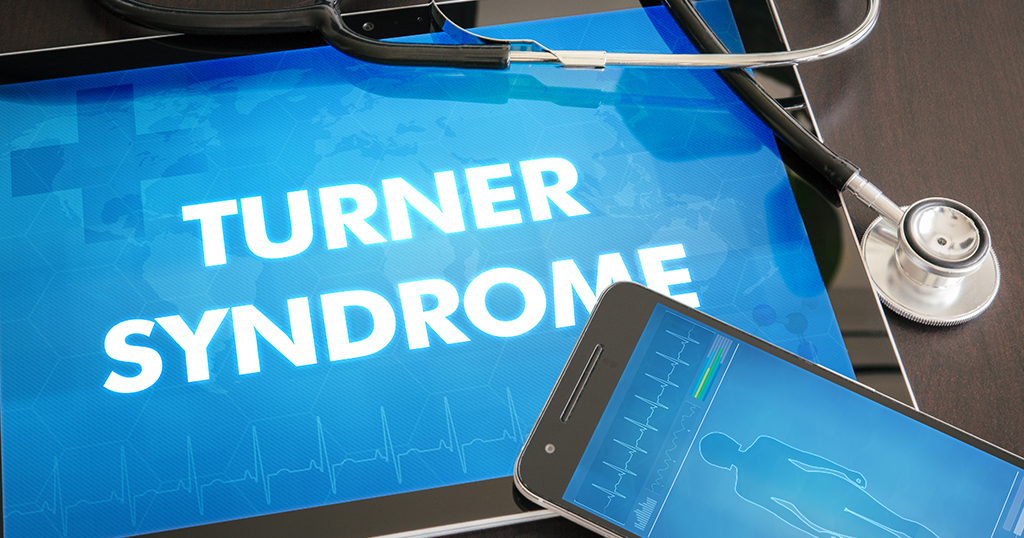Turner syndrome is a chromosomal abnormality that affects only women. Puffy feet can be a sign of Turner syndrome.
Puffy feet in babies can be a sign of Turner syndrome
What is Turner syndrome?
Turner syndrome is a genetic abnormality seen in women, first described by Henry Turner. It has certain characteristics that render a woman infertile (unable to conceive) and prone to several disorders like hypothyroidism and osteoporosis. This condition is seen only in women.
Chromosomes contain our genetic make-up, namely our DNA and genes. Humans have 46 chromosomes including two sex chromosomes. While a male has X and Y sex chromosomes, a female has X and X chromosomes. The second X chromosome in a female is called the Barr body and abnormalities in this leads to Turners syndrome. Most often these cases have only one X chromosome or if they have two, one X chromosome may be lacking some cells. The aberrant X chromosome may be maternal or paternal in origin.
Symptoms and signs of Turner Syndrome
A person suffering from Turner syndrome may exhibit the following symptoms:
- As an infant, she may have a wide, webbed neck and swollen hands and feet (lymphoedema).
- During childhood, females with Turner have recurrent ear infections which may lead to hearing loss.
- She may grow slowly after three years of age due to hormonal problems, namely lack of growth hormone.
- Such patients have good reading and writing skills. Most girls with Turner’s do not have a mental handicap, but a small per cent may have intellectual disabilities. Commonly observed are Attention Deficit Hyperactivity disorder or ADHD and non-verbal learning disabilities related to mathematics, spatial and social skills.
- Kidney malformations like a horseshoe kidney may be present.
- There is a tendency to develop high blood pressure, diabetes and hypothyroidism.
- Other deformities are a wide, webbed neck; a low hairline; short fingernails, a flat chest (referred to as shield chest) with widely spaced nipples; minor eye problems.
- Circulatory problems may arise due to congenital heart defects. Most foetuses with heart problems abort in the form of stillbirths and miscarriages. Those that survive may need heart surgery soon after birth .
- At puberty, there is no commencement of periods (menses) and ovaries may be absent or deformed (streak ovaries).
- Due to abnormal ovaries, oestrogen, which is normally secreted by the ovaries, is diminished, leading to a lack of secondary sexual characteristics like the appearance of pubic hair, development of breasts.
Causes and risk factors related to Turner syndrome
- Turner’s syndrome occurs at a ratio of 1 : 2500 in the general population.
- Genetic cause: Absence or an incomplete X chromosome is the main reason for Turner Syndrome. This is also called gonadal dysgenesis.
- Research shows that 75% of the time, the inactive X chromosome is paternal in origin.
Diagnosis of Turner syndrome
Diagnosis may be made in the womb by the method of amniocentesis. In a newborn, congenital heart disease and circulatory problems may reveal the diagnosis. In a child, lack of growth in height of a girl may prompt the parents to seek medical attention.
Treatment of Turner Syndrome
Hormone therapy becomes the primary form of treatment for all girls and women suffering from Turner syndrome. This includes growth hormone therapy to increase height and oestrogen therapy to begin puberty.
Girls with Turner syndrome require special attention as they go through adolescence and into adulthood. Regular medical checks and a healthy lifestyle help immensely in improving the length and quality of life.
For a woman with Turner to get pregnant, the health of the uterus must be maintained by hormone replacement therapy starting from puberty. Oestrogen will cause withdrawal bleeding similar to periods. It should be noted that the uterus and vagina are normal even though the woman is infertile. If she desires a child, she may use in-vitro fertilization (IVF) with donated eggs to achieve pregnancy.


















